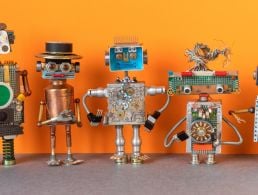Examining artificial intelligence in the workplace, William Fry partner Catherine O’Flynn looks at AI-assisted recruitment and whether Ireland’s employment equality legislation stands up to it.
Artificial intelligence (AI) has already changed the recruitment process, making it more effective, and this change will rapidly increase. Employment equality law will both be impacted by and will impact AI-assisted recruitment, and it appears likely that Ireland’s current employment equality legislation, the Employment Equality Acts 1998–2015, may have to be amended to reflect these changes.
‘There is a danger that the negatives in the normal recruitment process will be normalised in AI-assisted recruitment’
Recruitment and AI
There are many examples of how AI has assisted employers and employees in the recruitment process. Prime examples include:
- Textio, an ‘augmented writing’ company that analyses and monitors job descriptions and suggests alternative wording to engage passive candidates, ensure a gender balance, eliminate unconscious gender bias and target the most qualified candidates
- Headstart, a recruitment matching company based on algorithms
- Paññã, a video-interview platform from Mroads that indicates, among other things, when candidates are behaving strangely in interviews
Leading AI-in-the-workplace commentator Peter Cosgrove has explored the potential impact on recruitment by AI extensively. Cosgrove believes that technology can be used to help both employers and employees in the recruitment process, but technology will not in itself mean that the actual recruitment process is no longer important. He explains: “Like much technology, it is as much about the process and time put into it as it is about the product itself.”
This is equally true from an employment equality perspective. The traditional recruitment process will continue to be important. Technology will still need to be programmed by humans and this part of the process will leave room for bias to be in-built in the foundations of recruitment technology. As more and more companies use AI in the initial phases of recruitment, there is a danger that the negatives in the normal recruitment process will be normalised in AI-assisted recruitment with certain demographics unable to proceed to face-to-face interview stage and, ultimately, employment.
Simple changes by employers can assist in ensuring that the process is not compromised, such as stress-testing the AI recruitment process internally and appointing a human employee to audit various stages of the process. For AI to assist us in the recruitment process, it is vitally important that time and effort is put into how technology can be used and how it fits into an organisation’s current process.
Diversity
Once problems in the process are identified and fixed, AI in the recruitment process can help to create a more diverse workforce and encourage equality. The Financial Times reported that BDO UK has replaced face-to-face interviews with recorded videos for graduate-level candidates, in an effort to help less-well-off students who may be unable to take time out of work and travel for interviews.
Some candidates may also feel more comfortable in a non-traditional recruitment process, and AI-assisted recruitment can help candidates with disabilities in many ways. If used correctly (with bias eliminated), the process can also be much safer and can protect against latent or inherent bias of humans.
Employment Equality Acts
The Irish acts currently state that an employer may not discriminate against a prospective employee in any arrangement that it makes for the purposes of deciding to whom the job should be offered. The legislative provision appears to be broad but it is uncertain if it is broad enough to include discrimination by AI in the recruitment process. For example, could an employer argue that, by using AI-assisted recruitment, it did not discriminate against a candidate and, in fact, the service provider did?
While AI has been proven to improve the recruitment process for employers through efficiency, speed and the circulation of roles to a more diverse grouping of candidates, there is also potential for discrimination in AI-assisted recruitment. While a case involving discrimination based on AI in a recruitment process has yet to arise, when it does so our current legislation will be put to the test and it is important that employers and the legislature consider these issues now.
Catherine O’Flynn is a partner at William Fry and head of the firm’s Employment & Benefits department. She advises on all contentious and non-contentious employment matters with a particular expertise in equality issues.
A version of this article originally appeared on the William Fry blog.




